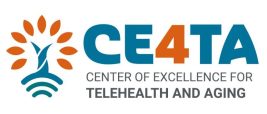AMDA — The Society for Post-Acute and Long-Term Care Medicine has been a strong advocate for the use of telemedicine in post-acute and long-term care. AMDA is a member organization representing a community of over 50,000 medical providers within the Post-Acute and Long-Term Care (PALTC) field. Its mission is to enhance the development of medical practitioners and leaders in providing goal-concordant care across PALTC settings, such as nursing homes, rehabilitation centers, and assisted living facilities. This mission extends to new developments in telehealth delivery. AMDA is committed to encouraging the integration of age-inclusive telehealth best practices in PALTC settings and has demonstrated that commitment by signing the pledge of support for the Age-Inclusive Telehealth.
AMDA recommends that for a telehealth care model to be most effective at improving the health and well-being of older adults, it should be delivered based on three core principles. The organization believes telehealth should be 1) equitable and accessible, 2) person-centered, and 3) integrated and coordinated within the healthcare continuum. These principles were originally developed by the Collaborative for Telehealth and Aging (C4TA)—a national group of medical professionals and patient advocates with expertise in geriatrics, telehealth, and healthcare operations.
To further their work of optimizing telehealth for older adults, AMDA proactively formed a telehealth subcommittee to collaborate on strategies to ensure telehealth services benefits every type of patient regardless of age, ability, race, or socioeconomic status. The subcommittee was in operations before the pandemic, working to promote the utility of telehealth and telemedicine. The aim has shifted since the pandemic, “[now] the question is less about if we should do telemedicine, but more about how it should be done,” said Dallas Nelson, MD, CMD, Chairwoman of the AMDA telehealth subcommittee.
One of the subcommittee’s main points of advocacy focused on Medicare’s and private insurance coverage of telehealth visits. Prior to the COVID-19 pandemic, Medicare allowed billing for telemedicine only once every 30 days. Eliminating restrictions on how often telemedicine visits are covered by Medicare and private insurers permanently became an important topic for the group members. “AMDA has felt that telemedicine payment should be based on medical necessity. We would be happy to justify medically why telemedicine was the best choice for a person, but we don’t think that an arbitrary time frame and frequency of payment makes medical sense,” said Dr. Nelson.
AMDA has been outspoken about policy changes that should occur to better meet the needs of older adults in PALTC settings. Dr. Nelson believes eliminating payment restrictions would lead to greater equity in telemedicine, “if [telehealth] is not paid for in the fee schedule, then you’re going to get business-to-business arrangements. It’s well publicized that nursing homes do delineate on socioeconomic status. If you’re depending on business-to-business arrangements, only the highest socioeconomic nursing homes are going to get the added benefit of the increased access. I think that payment is critical to equity.” AMDA recently published an article outlining rational regulation changes to provide effective telemedicine. Read more about their recommendations in their JAMDA article “Innovation Through Regulation: COVID-19 and the Evolving Utility of Telemedicine.”
A Call to Action
AMDA was one of the first signees of the Pledge of Support for Age-Inclusive Telehealth Practices, which was initiated by the Center of Excellence for Telehealth and Aging (CE4TA). The pledge is a way for organizations to demonstrate their public commitment to providing and advocating for telehealth services that follow CE4TA’s Principles and Guidelines for Telehealth and Aging. CE4TA is led by West Health Institute, University of Virginia Department of Geriatrics and the Mid-Atlantic Telehealth Resource Center
AMDA is amplifying this message across its telemedicine subcommittee and among its fellow members. If your organization is also committed to providing high value telehealth care for older adults, visit The Center of Excellence for Telehealth and Aging for more information on the principles and guidelines or to sign the pledge of support.

